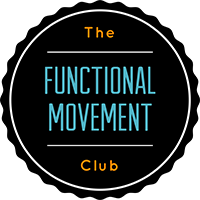
Decoding Pain: Understanding What Makes You Hurt
Understanding What Makes You Hurt. Pain is more than just a twinge or an ache. It’s a complex mix of factors from all parts of your life. Let’s break it down:
Stress: The Silent Aggravator
Stress isn’t just in your head—it can also show up in your body, making pain feel worse. When stress levels rise, your body releases hormones like cortisol, heightening your pain sensitivity. So, if you’re dealing with physical stress from overdoing it at the gym, emotional stress from a tough day at work, or social stress from conflicts with loved ones, it can all add up to more pain.
- Physical Stress: Too much heavy lifting or pushing yourself too hard can amp up your pain.
- Emotional Stress: Feeling anxious or stressed out can worsen your pain.
- Social Stress: Being lonely or having conflicts in your relationships can also crank up the pain.
- Spiritual Stress: Feeling lost or lacking purpose can stir up pain, too.
PSST . . . Heres a FREEBIE I made for you
Exercise: What hurts makes you stronger? Not always
Exercise can be a double-edged sword when it comes to pain. The right kind of movement can actually ease your pain by improving flexibility, strength, and circulation. But if you’re doing exercises that don’t suit your body or doing them incorrectly, they might make your pain worse.
- Right Moves: Doing exercises that suit your body can actually ease your pain.
- Wrong Moves: But if you’re doing exercises that don’t fit you or doing them incorrectly, they might make your pain worse.
Wonky Movements: How You Move Matters
The way you move can play a big role in your pain levels. Doing the same movements over and over can strain your muscles and trigger pain signals. And if you’re slouching or sitting in awkward positions, you’re putting extra strain on your body, which can lead to pain.
- Repetitive Actions: Doing the same movements over and over can trigger pain signals.
- Bad Posture: Slouching or sitting in awkward positions can strain your muscles and lead to pain.
Sleep: The Pain Reset Button or Aggravator
Getting enough quality rest is crucial when it comes to managing pain. When you’re well-rested, your body has a chance to repair itself and your pain levels tend to decrease. But if you’re tossing and turning all night or not getting enough sleep, your pain might spike.
- Good Sleep: Getting enough quality rest can calm down your pain and help you feel better.
- Bad Sleep: But if you’re tossing and turning all night, your pain might spike.
Brain Chemicals: The Pain Puppeteers
Your brain chemistry plays a big role in how you experience pain. When stress levels soar, your body releases hormones like cortisol, which can make your pain feel worse. And if your levels of mood-boosting chemicals like serotonin and dopamine are low, your pain might be harder to manage. On the flip side, the “love hormone” oxytocin can actually help ease pain when you feel connected and supported.
- Cortisol: When stress levels soar, cortisol rises too, bringing pain along for the ride.
- Serotonin and Dopamine: Low levels of these mood-boosting chemicals can worsen pain.
- Oxytocin: The “love hormone” can actually help ease pain when you feel connected and supported.
Understanding What Makes You Hurt: Bringing it All Together
Pain isn’t just about what’s happening in your body—it’s about your whole life. By managing stress, moving in ways that suit you, getting good sleep, and keeping those brain chemicals balanced, you can dial down your pain and improve your overall well-being. It’s a journey, but with an understanding of what makes you hurt, you’re on the right track to feeling better.





